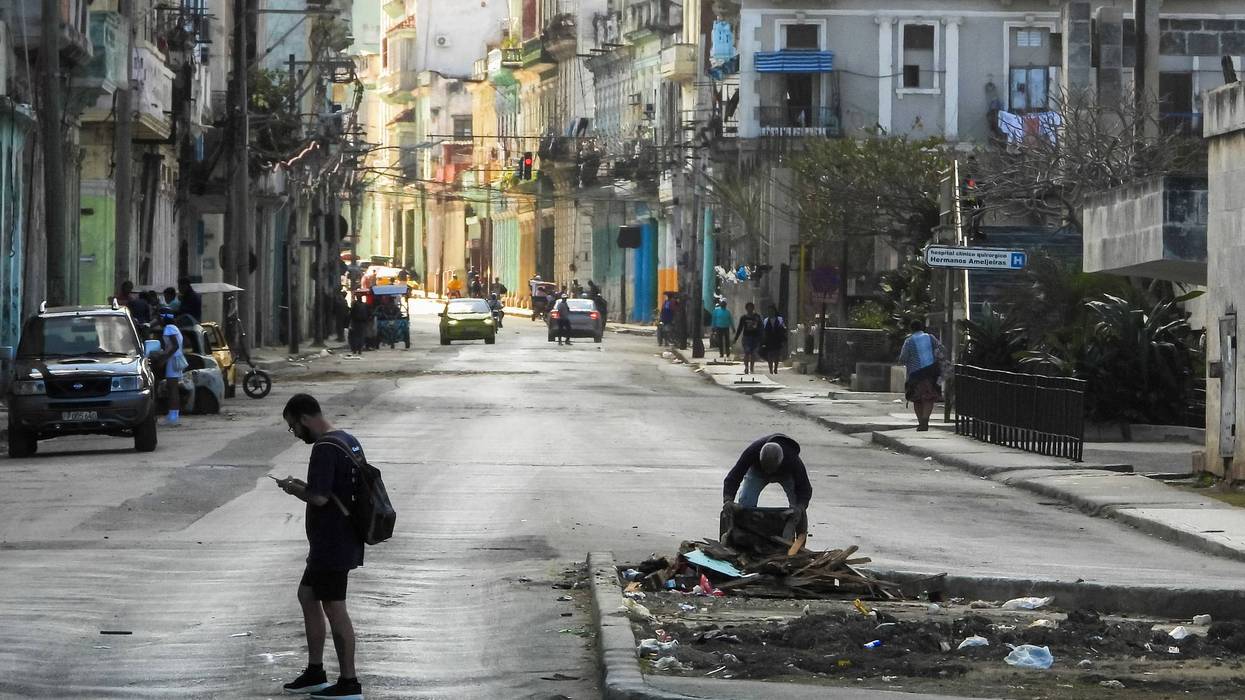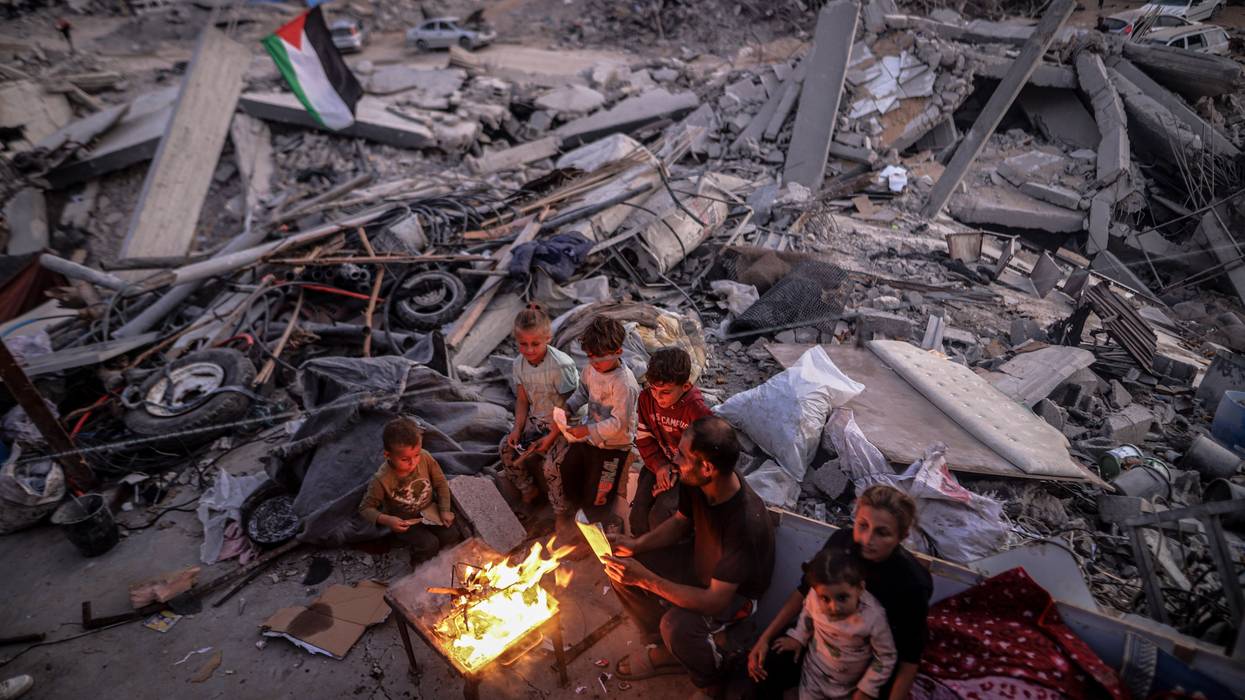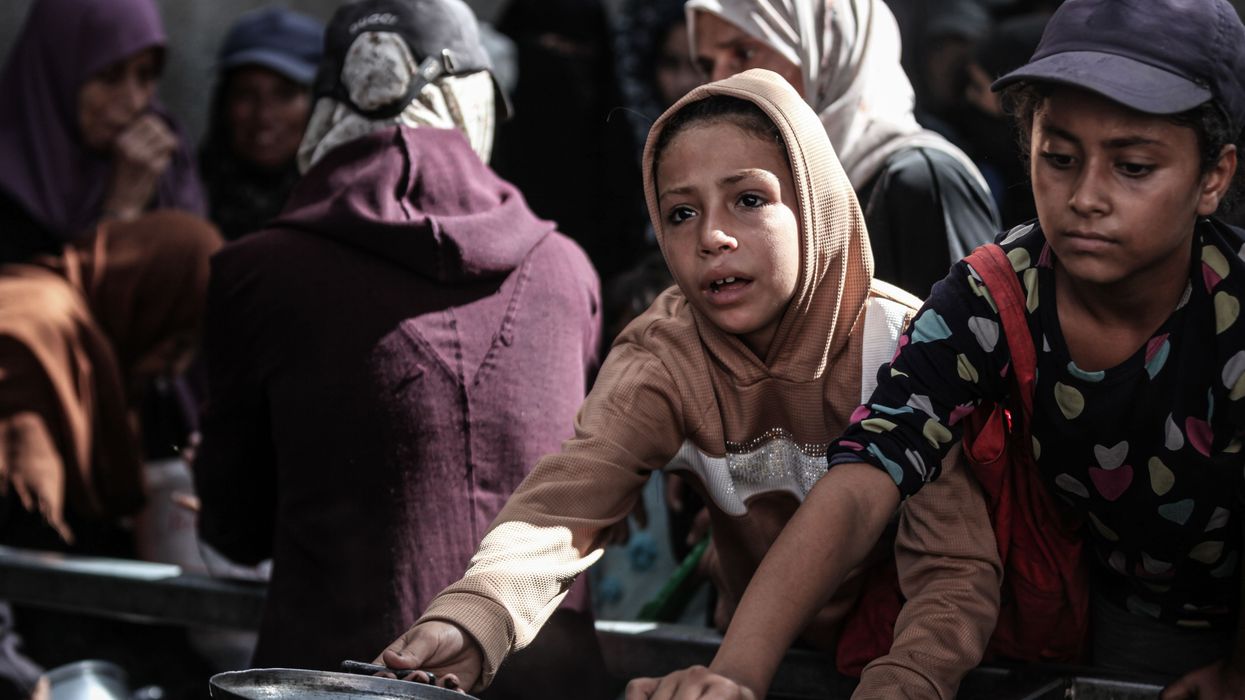He makes two appeals. First, the duplicitous demand that Israel should use the one-month reprieve to cover up the evidence of atrocities: "Soon, journalists and photographers will enter Gaza… They will find terrible sights. Hence, Israel’s urgent task: to document retrospectively, to finally prepare explanations, to show… that Hamas operated from hospitals, schools, and refugee camps." In other words, bury the truth with the bodies.
Secondly, that since in this conflict Israel did absolutely nothing that it could have wished to hide, it should learn not to impose absolute media blackouts so likely to arouse suspicion.
Our own hearts cannot escape the howling winter unless we take, far more seriously, the hell of winter and despair to which we continue to subject Palestinians living in Gaza.
I sense a cold, hard winter within the souls of people in league with Dan Perry’s perspective.
Now, a cold, hard winter approaches Gaza. What do Palestinians in Gaza face, as temperatures drop and winter storms arrive
Turkish news agency Anadolu Ajansi reports: "Palestinians in the Gaza Strip continue to endure hunger under a new starvation policy engineered by Israel, which allows only non-essential goods to enter the enclave while blocking essential food and medical supplies… shelves stacked with non-essential consumer goods disguise a suffocating humanitarian crisis deliberately engineered by Israel to starve Palestinians.”
“I haven’t found eggs, chicken, or cheese since food supplies started entering the Gaza Strip,” Aya Abu Qamar, a mother of three from Gaza City, told Anadolu. “All I see are chocolate, snacks, and instant coffee. These aren’t our daily needs,” she added. “We’re looking for something to keep our children alive.”
On November 5, 2025 the Norwegian Refugee Council sounded this alarm about Israeli restrictions cruelly holding back winter supplies. NRC's director for the region, Angelita Caredda, insists, “More than three weeks into the ceasefire, Gaza should be receiving a surge of shelter materials, but only a fraction of what is needed has entered."
The report states:
Millions of shelter and non-food items are stuck in Jordan, Egypt, and Israel awaiting approvals, leaving around 260,000 Palestinian families, equal to nearly 1.5 million people, exposed to worsening conditions. Since the ceasefire took effect on 10 October, Israeli authorities have rejected twenty-three requests from nine aid agencies to bring in urgently needed shelter supplies such as tents, sealing and framing kits, bedding, kitchen sets, and blankets, amounting to nearly 4,000 pallets. Humanitarian organisations warn that the window to scale up winterisation assistance is closing rapidly.
The report notes how, despite the ceasefire, Israel has continued its mechanized slaughter and its choke hold on aid.
In Israel's +972 Magazine, Muhammad Shehada reports: "With the so-called ‘Yellow Line,’ Israel has divided the Strip in two: West Gaza, encompassing 42 percent of the enclave, where Hamas remains in control and over 2 million people are crammed in; and East Gaza, encompassing 58 percent of the territory, which has been fully depopulated of civilians and is controlled by the Israeli army and four proxy gangs." This last, a reference to four Israel Defense Forces-backed militias put forward by Israel as Hamas' legitimate replacement.
If ever tallied, the number of corpses buried under Gaza’s flattened buildings may raise the death toll of this genocide into six figures.
The United Nations estimates that the amount of rubble in Gaza could build 13 Giza pyramids.
"The sheer scale of the challenge is staggering," writes Paul Adams for the BBC: "The UN estimates the cost of damage at £53bn ($70bn). Almost 300,000 houses and apartments have been damaged or destroyed, according to the UN's satellite centre Unosat…The Gaza Strip is littered with 60 million tonnes of rubble, mixed in with dangerous unexploded bombs and dead bodies."
No one knows how many corpses are rotting beneath the rubble. These mountains of rubble loom over Israelis working, in advance of global journalism's return, to create their counternarratives, but also over surviving Gazans who, amid unrelenting misery, struggle to provide for their surviving loved ones.
Living in close, unhygienic quarters; sleeping without bedding under torn plastic sheeting; and having scarce access to water, thousands of people are in dire need of supplies to help winterize their living space and spare themselves the dread that their children or they themselves could die of hypothermia. The easiest and most obvious solution to their predicament stands enticingly near: the homes held by their genocidal oppressors.
In affluent countries, observers like Dan Perry may tremble for Israel's reputation, eager to rush in and conceal Israel's crimes, clothing them in self-righteous justifications. These are of course our crimes as well.
Our own hearts cannot escape the howling winter unless we take, far more seriously, the hell of winter and despair to which we continue to subject Palestinians living in Gaza.
There is no peace in Gaza. May there be no peace for us until we fix that.




